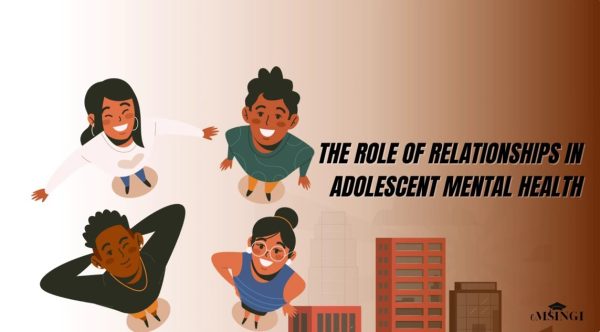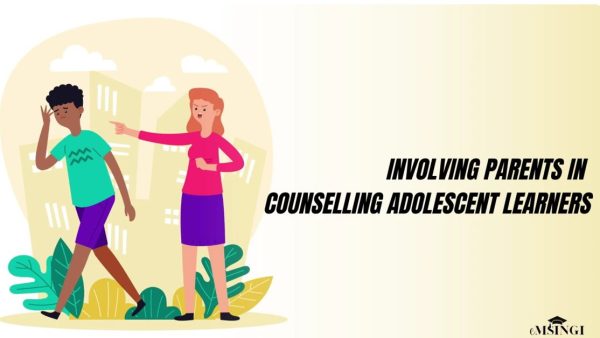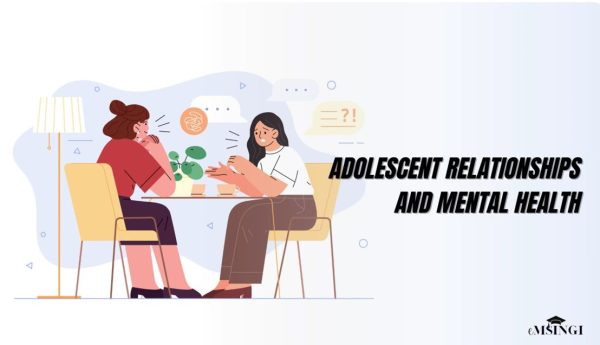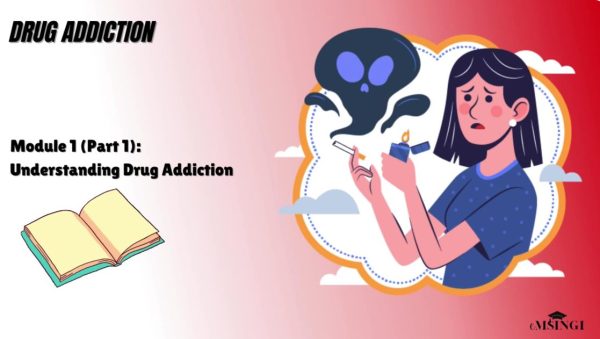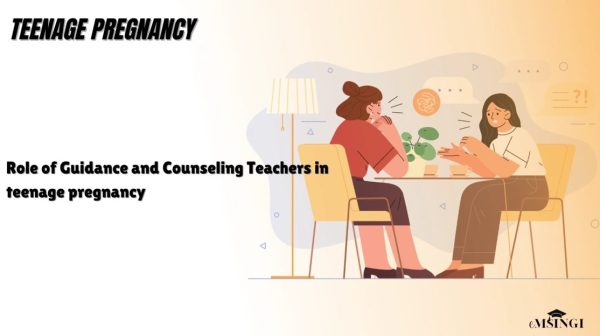What is Mental Health?
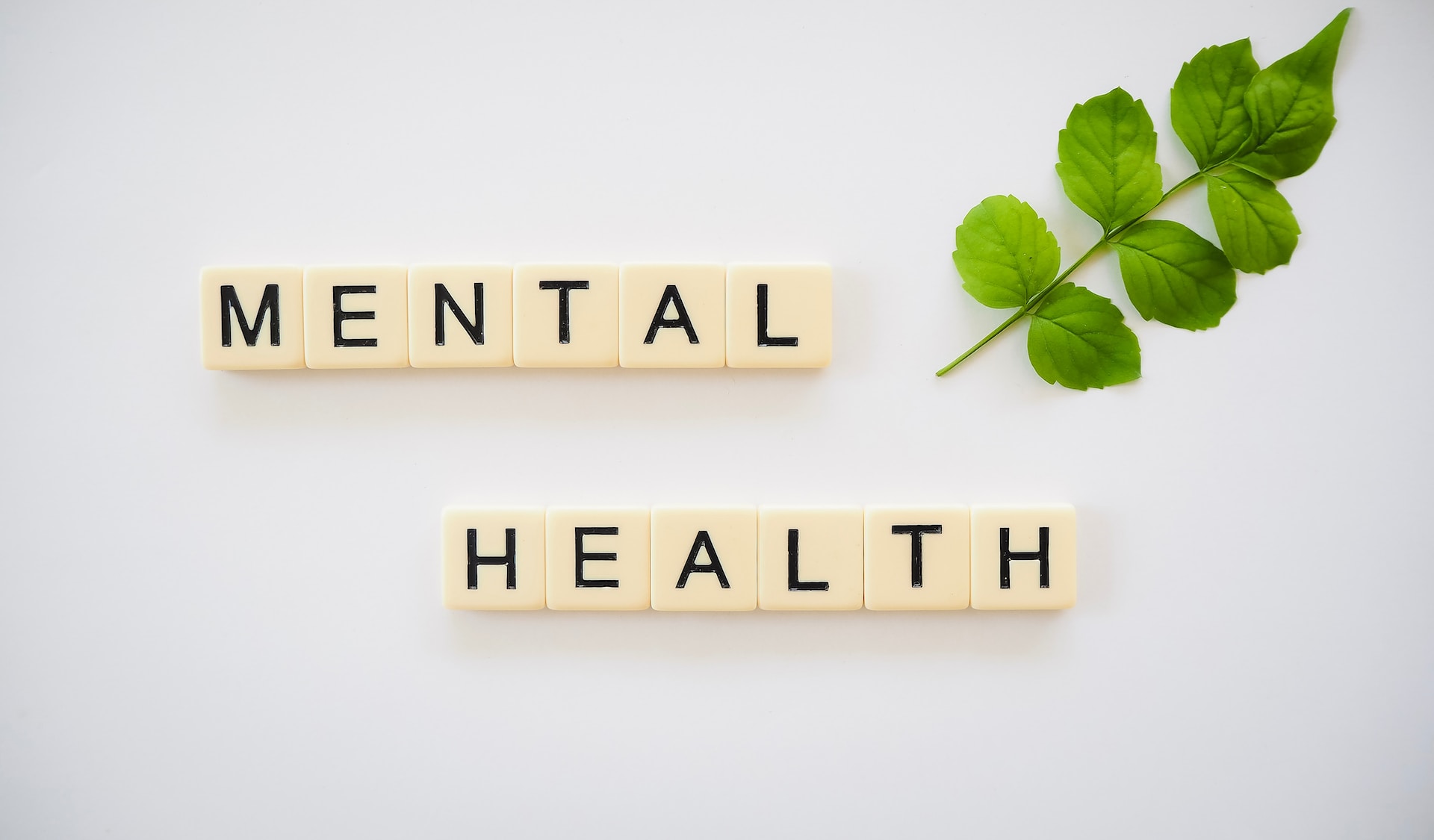
Mental Health is the part of our health that is related to our ability to think, feel, learn, work, build meaningful relationships and contribute to the world. 1 in 10 children suffer from a mental health condition and never get the mental health care they need,this is according to UNICEF.
In this section you will learn about mental health and how to offer psychological and social support. You will also get access to resources that can help you or your learners improve their mental wellbeing.
Mental Health and Guidance and Counseling
In many public schools across Kenya, mental health and psychosocial support services are provided through the guidance and counselling department. While most guidance and counselling teachers are not formally trained as mental health professionals, they play a vital role in supporting learners’ emotional wellbeing, identifying early signs of distress, and creating safe spaces where students can be heard and guided.
Through the eMsingi Psychosocial Support (PSS) pillar, we have strengthened the capacity of educators by hosting over 20 specialised webinars, engaging more than 1,000 teachers across over 250 schools. Through these trained teachers, the impact of psychosocial support extends beyond the classroom, reaching an estimated 43,000 households indirectly.
The resources provided here are designed to support you in your daily counselling and guidance work. They offer practical approaches to addressing common challenges learners bring to the counselling office — from stress and peer pressure to family-related difficulties and emotional wellbeing.
By strengthening your capacity to provide psychosocial support, we are collectively building schools that not only focus on academic success, but also nurture resilience, confidence, and holistic learner development.

Educational Videos
5 tips for communicating with adolescents
Establishing trust and rapport while counselling adolescents
How to counsel adolescents
Empowering Teachers
Transforming Learning for Students with Disabilities!
The Learning Disabilities Online Course equipped dedicated educators with the knowledge and skills to identify, understand, and support learners with learning disabilities (LDs) in public and under-resourced schools. From Dyslexia, Dysgraphia, Dyspraxia, and Dyscalculia to ADHD, Autism, and Intellectual Disabilities, teachers explored the causes, diagnosis, and intervention strategies essential for fostering inclusive education.
Beyond academics, participants tackled mental health and psychosocial challenges, learning how to create neurodiverse-friendly classrooms that uplift every student. Through practical strategies and hands-on insights, this course is transforming education—one classroom at a time!
Worksheets
What is anxiety?
Anxiety is a mental and physical reaction to perceived threats. In small doses, anxiety is helpful. It protects us from danger, and focuses our attention on problems. But when anxiety is too severe, or occurs too frequently, it can become debilitating.
What is worry?
Use this worksheet to educate children and young adolescents about worry, help them become more aware of their own worries, and learn about physical symptoms of worry. Finally, the worksheet opens a conversation about healthy strategies to manage worry.
What are the symptoms of stress?
Stress is one way that our bodies respond to the day-to-day struggles and demands of life. A little bit of stress can be healthy—it keeps us alert and productive. However, when we experience too much stress, it can result in serious physical, emotional, and behavioral symptoms.
What is the cycle of depression?
A stressor is any situation that causes strain or hardship. These may be short-term or long-term.
What is the cycle of depression?
A stressor is any situation that causes strain or hardship. These may be short-term or long-term.
What is Trauma?
Trauma is a powerful emotional response to a distressing event, such as war, an accident, the unexpected loss of a loved one, or abuse. Trauma can continue to cause both emotional and physical symptoms for many years after the event has concluded.
Resources provided by: www.therapistaid.com
Free Mental Health Helpline
Dial 116
Childline Kenya: A toll-free helpline with 24/7 support from a counsellor. Dedicated to children, or children-related issues
Dial 1199
Kenya Redcross: A toll- free helpline available to the public in Kenya with 24/7 free counselling services-serves all ages
Feedback from Teachers
Most frequent questions and answers
- “I lower myself to be like their elder sister”
- “It’s a tough role and I have other subjects to teach, besides counselling students”
- “Sometimes I get resources from Counselling interns who come to our school”
- “I use my own experiences of growing up, to counsel my students”
- “ I find it hard to ask students questions, some might get offended if I ask”
- “Sometimes it’s difficult to guide them I need someone who can teach me how.”
- “Sometimes I exchange notes with the principal for support”
- Drug addiction
- Effects of alcoholic parents
- Early pregnancy and challenges of returning to school after giving birth,
- Abortion by parents’ demand
- Boy/Girl relationships
- Sexual harassment and exchange of sexual favours for money with bodaboda riders
- Problems at home e.g children of parents who suffer from drug and substance use disorders
- Poor academic performance and disinterest in school,
- Need for guidance on choice of subjects and dropping out of school
- Poverty and low resources
- Sexual and physical abuse , emotional abuse from parents
- Childhood trauma
Contribute Financially
Support our work through M-Pesa
Account Number: EMsingi
Onboard Your School
Bring eMsingi programs to your institution
Become a Partner
Join us as a collaborative partner
General Inquiry
Contact us for any other questions
Contact us
Office Location
Strathmore University
Madaraka Estate
Tel: +254 703 034194
Email: communications@emsingi.org
Leave your details and our team will get back to you within 2–3 working days.
